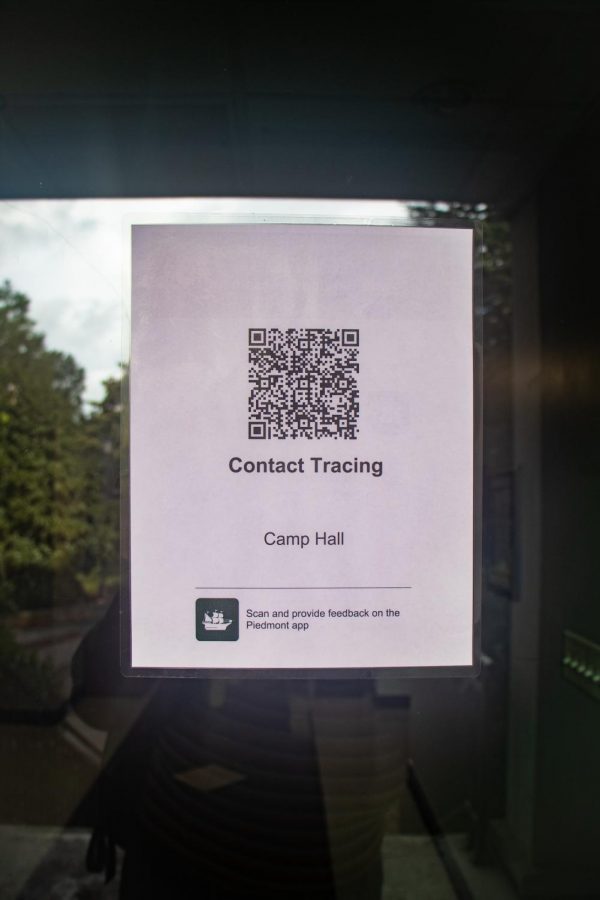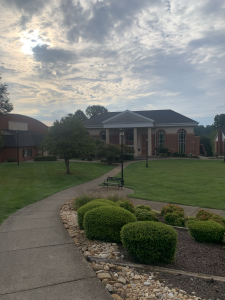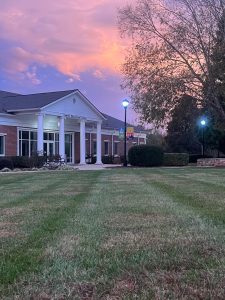Social Tracing
In all academic buildings, there are QR codes that students and faculty are expected to scan. // Photo by Zoe Hunter
September 24, 2020
In the past few weeks, Piedmont College has added QR codes at the entrances of most buildings on campus. These codes are labeled “Social Tracing” or “Contact Tracing,” so that the school can track the whereabouts of students who potentially carry COVID-19. Seeing the codes, many students assumed they were to assist Piedmont in informing us if we attended the same building as someone who tested positive for COVID-19. Or at the very least, students were hopeful that the codes were going to assist Piedmont in creating an updated report for students, faculty and staff to know how many cases are on campus.
Since this is a new asset for Piedmont, students could potentially receive access to the contact tracing data in the future. Why would students not be given access? A potential reason could be to reduce the number of tests. If students are presented with this information and they notice they came in contact with someone who is experiencing symptoms but has not received test results yet, it’s highly likely that student will request to get tested. Piedmont College has agreed to front the cost of the test, as long as they recommend the student be tested. If a student wants to get tested because they think they came in contact with an infected person and they are willing to cover the cost, why should the school deny that?
Students are able to view their personal contact tracing data through the Piedmont App, if they look under the “Health and Wellness” tab and choose the “Contact Log.” This allows students to view where they have been and what time, but they cannot see anyone else’s data. According to the Piedmont App’s “Privacy FAQ” tab, students need to scan the QR Codes so that it “lets your institution notify you if you were in contact with someone who tested positive for COVID-19.” Currently, Piedmont is not using the QR Codes to notify their students if they have come in contact with someone who has tested positive.
The Center for Disease Control recommends that institutes of higher education should notify faculty, staff and students of any positive cases on campus while still maintaining confidentiality with applicable laws and regulations. The CDC also suggests to immediately inform those who were in close contact with the person who tested positive “to stay home or in their living quarters and self-monitor for symptoms.” Other colleges around Georgia and the United States have a continuously updated report for their student body to stay informed on the number of cases on campus. Both public and private colleges are reporting basic, yet important, information. In general, the information provided is whether the case was student or employee, the date of the report, if they are quarantined on-campus and the impact on campus. Other colleges are also informing anyone who came in contact with the person that tested positive, unlike Piedmont who is only informing roommates of the positive individual.
If anything, Piedmont should want students to know this information, because then they can go get tested on their own money, if able. Currently, some students at Piedmont are not taking COVID-19 seriously, but if students knew the basic Coronavirus data on campus they might realize the significance of the virus and be as careful as possible on and off campus. Students were expected to make adult promises to follow guidelines put in place by the task force, yet they are not giving us information every adult should have access to.













